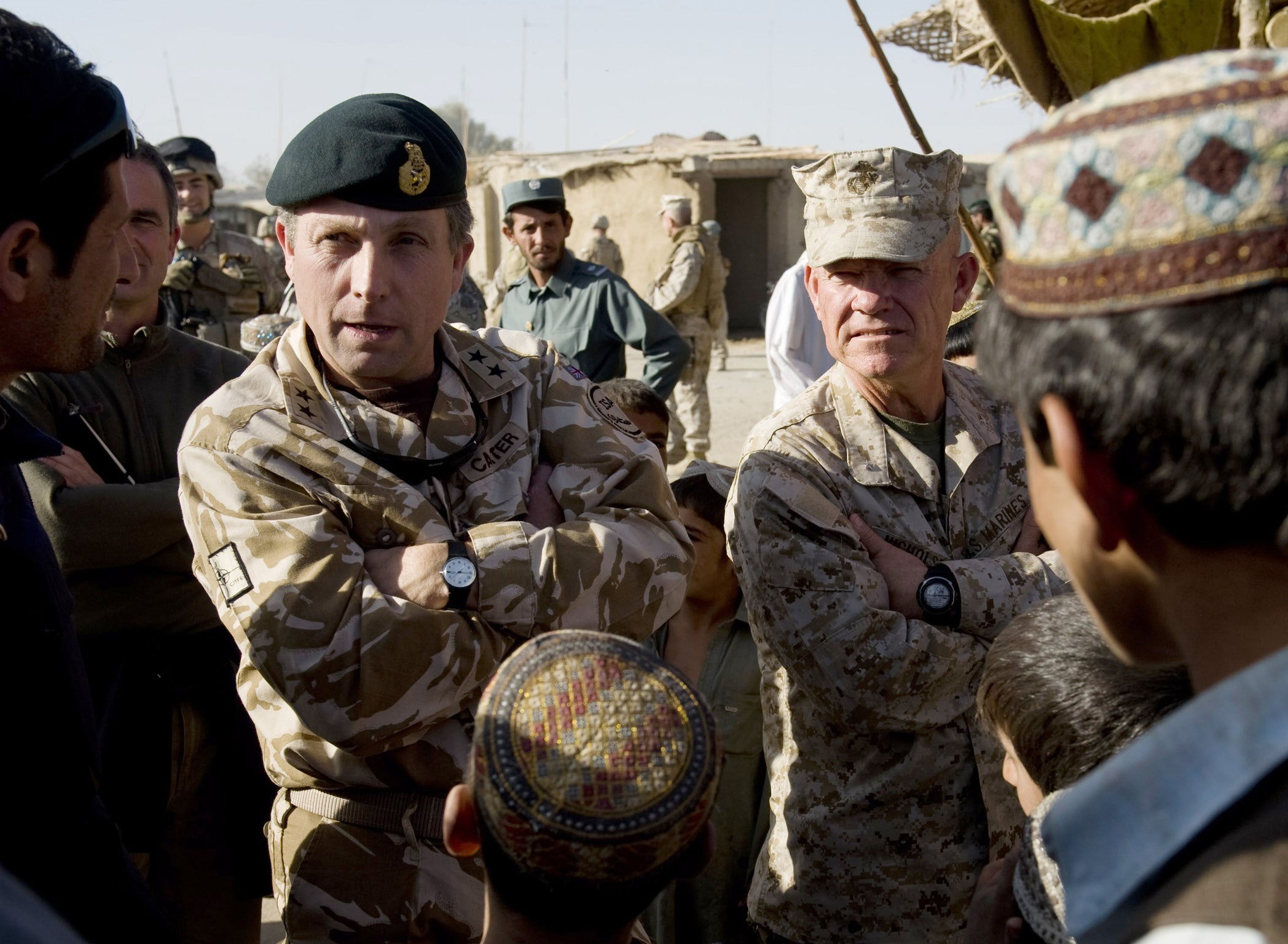'British Army chief risked soldiers' lives,' says US colonel
Senior American officer in Afghanistan makes astonishing claim about deputy Isaf commander over his advice to soldiers

Your support helps us to tell the story
From reproductive rights to climate change to Big Tech, The Independent is on the ground when the story is developing. Whether it's investigating the financials of Elon Musk's pro-Trump PAC or producing our latest documentary, 'The A Word', which shines a light on the American women fighting for reproductive rights, we know how important it is to parse out the facts from the messaging.
At such a critical moment in US history, we need reporters on the ground. Your donation allows us to keep sending journalists to speak to both sides of the story.
The Independent is trusted by Americans across the entire political spectrum. And unlike many other quality news outlets, we choose not to lock Americans out of our reporting and analysis with paywalls. We believe quality journalism should be available to everyone, paid for by those who can afford it.
Your support makes all the difference.The actions of one of the British Army's most senior officers have boosted the Taliban and put soldiers' lives at risk, according to an astonishing attack made by a former colleague.
Lieutenant General Nick Carter, deputy commander of the International Security Assistance Force (Isaf) in Afghanistan, is said to have declared that soldiers may have to die rather than defend themselves against the enemy to limit civilian casualties, according to a US Army memo obtained by The Independent on Sunday.
In the document, written by US Colonel Harry Tunnell, former commander of the 5th Stryker Brigade, 2nd Infantry Division, he also tells superiors of Lt Gen Carter's "poor military performance".
British military officials last night played down the remarkable comments by the outspoken colonel – described as "quite a junior officer in the grand order of things" – who has since left the military. Lord Richard Dannatt, former head of the British Army, said that [then] Maj Gen Carter was following Nato strategy. He added: "There was little scope for a 'British' approach as opposed to the Nato plan."
The MoD last night refused to comment on the letter, but insisted British forces work closely with the Americans, adding: "UK troops in Afghanistan have the inherent right to self-defence and accusations that we have placed troops in unnecessary danger are nonsensical."
But the document, sent to John McHugh, Secretary of the US Army, in August 2010, highlights serious tensions between some US and British commanders during one of the most critical phases in the protracted battle against the Taliban.
Col Tunnell said: "A gross lack of concern for subordinates manifests in guidance that 'zero' civilian casualties are acceptable and coalition soldiers may have to be killed rather than defend themselves against a potential threat and risk being wrong and possibly resulting in injury or death of civilians – a verbal order from Maj Gen Carter."
The British commander is said to have assumed command with "a one page plan" in what was an "overly simplistic approach", and deliberately placed incoming units into "highly lethal areas".
The eight-page memo is a scathing assessment of the Isaf operation. Civilian casualties have been a constant concern and weeks after writing his memo Col Tunnell saw five of his soldiers accused of murdering three Afghan civilians. Four were convicted at courts-martial last year, and a US Army investigation absolved the commander.
The memo also attacks the notion of training Afghans, stating that: "It is very unlikely that we will be able to provide Afghans with a level of education and training to make them an independent and reliable force."
The views contrast sharply with the assessment presented by UK officials at a Commons hearing last week. Mark Sedwill, Political Director and Special Representative for Afghanistan and Pakistan at the Foreign Office, told MPs: "If we make the right decisions, there is a good prospect that Afghanistan will continue to achieve the campaign objectives. We have had very good relationships between successive ambassadors and the deputy commander of Isaf, the senior British officer in theatre."
Lord Dannatt added: "There will always be differences of opinion within a multinational force especially at the tactical level. In 2010, Major General Nick Carter was subordinate to the US Nato General in overall command and following his plan ... had his professional peers not thought that he had done a good job in 2010, he would not be back there in 2012 in a more senior position."
Join our commenting forum
Join thought-provoking conversations, follow other Independent readers and see their replies
Comments